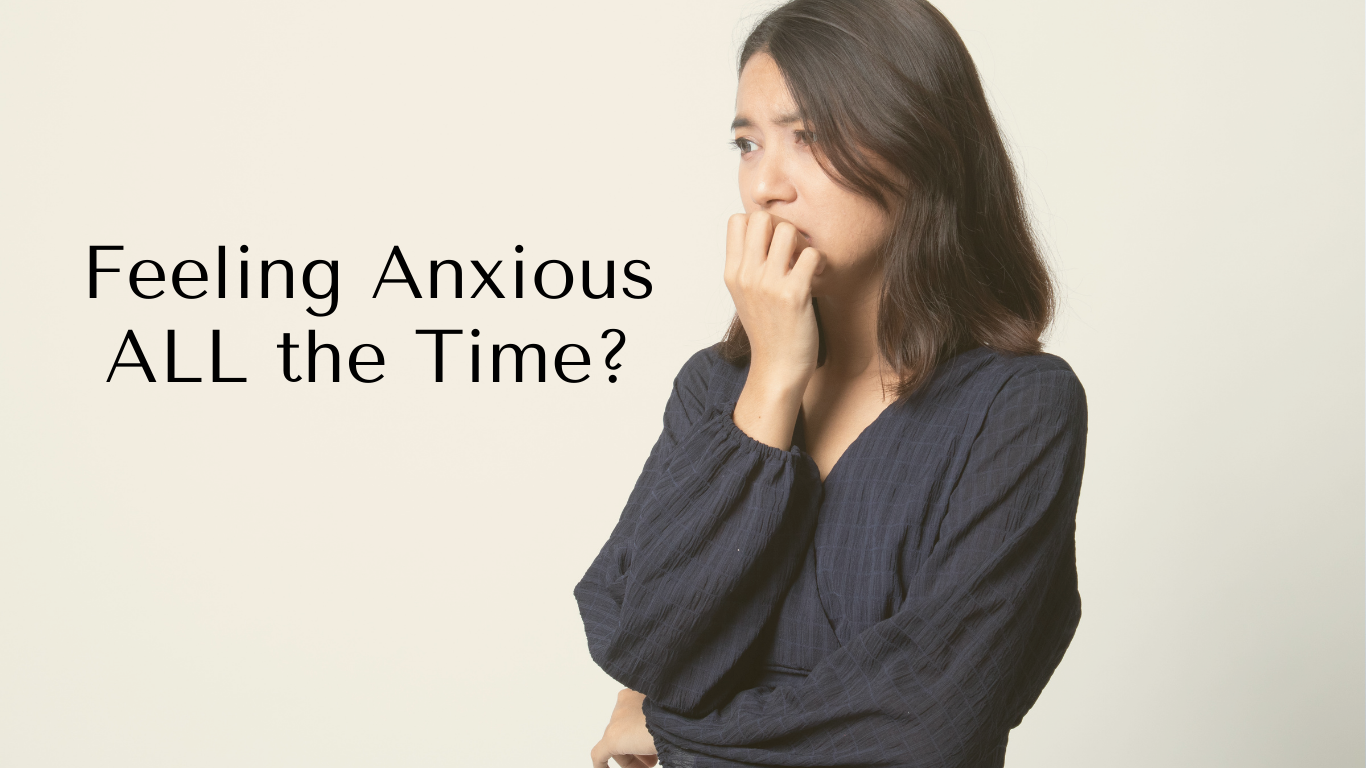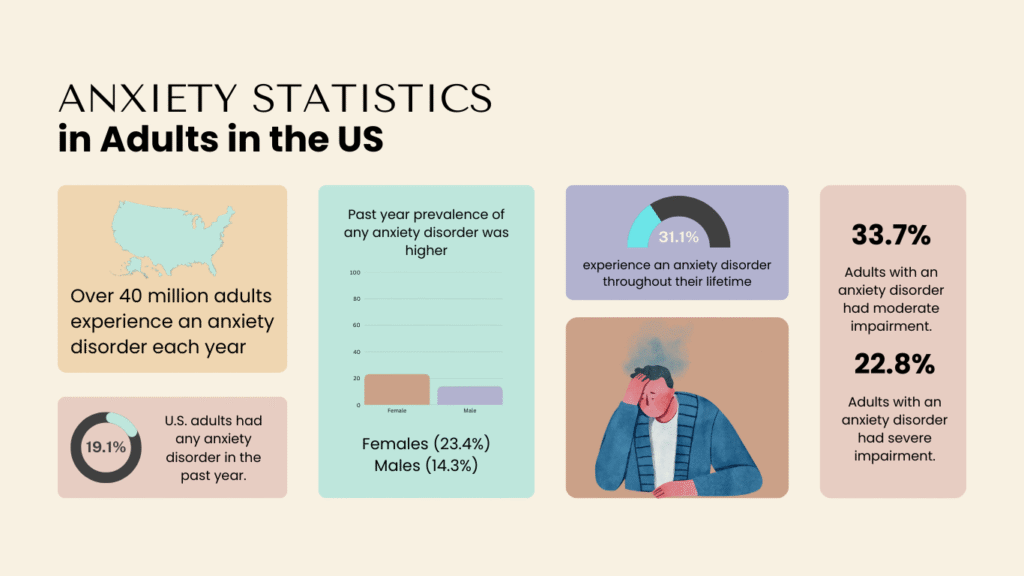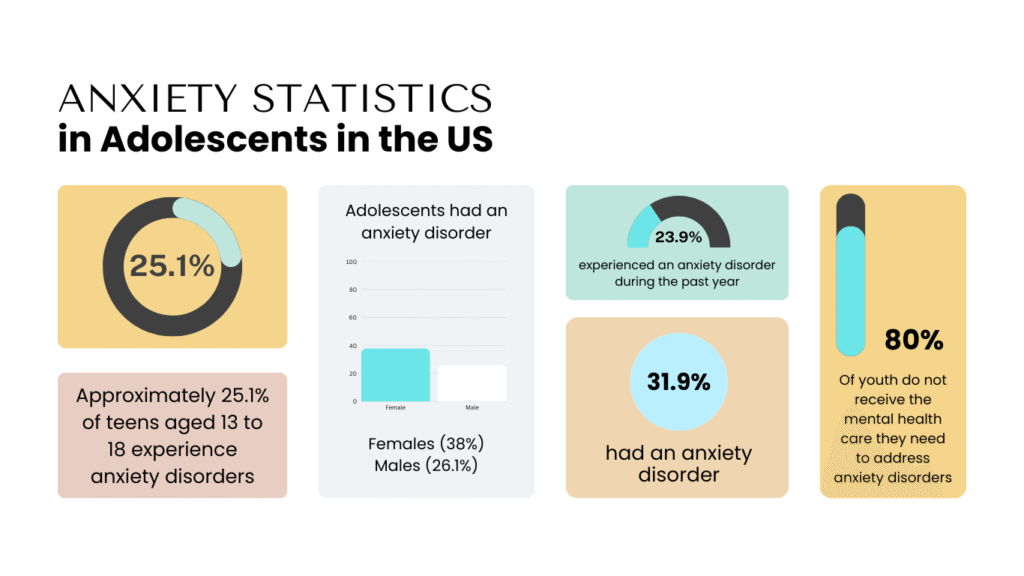Anxiety Treatment in Atlanta, GA

Living with anxiety can feel overwhelming, but effective treatment options are available in Atlanta. MARR Treatment Centers offers specialized anxiety treatment in Atlanta, GA, staffed by experienced mental health professionals who understand the complex nature of anxiety disorders.
Our anxiety treatment center provides comprehensive care to help our clients manage their symptoms and improve their quality of life. Research shows that professional treatment programs can reduce anxiety levels and help people develop lasting coping strategies.
Anxiety disorders affect many Georgia residents, making access to quality mental health care crucial. Allow MARR Treatment Centers to address your or a loved one’s unique needs.
What Makes MARR Different?
MARR Treatment Centers stands apart through its commitment to extended recovery programs, recognizing that true healing and sustainable sobriety require more than a quick fix. Our longer treatment duration provides the time needed for clients to not only break free from addiction but also develop crucial life skills and establish strong foundations for lasting recovery.
At the heart of our approach is a vibrant community focus, where individuals find strength and support through meaningful peer connections and mutual accountability. This community-driven model creates a powerful network that extends well beyond the treatment period.
We take a holistic approach to recovery, addressing not just the addiction itself but also diving deep into underlying mental health issues and trauma that often fuel substance use.
Our comprehensive approach to treatment, combined with our commitment to financial accessibility, creates a unique healing environment where lasting recovery can flourish.
Closer Look at Anxiety Disorders
Anxiety disorders affect the wellness of millions of people and can significantly impact daily life. These mental health conditions involve persistent worry and fear that goes beyond normal stress reactions.
What is an Anxiety Disorder?
Anxiety disorders are the most common mental health condition in the United States. This umbrella term is given to the family of related mental health conditions. Each subtype has its personality with defining characteristics.
At its core, anxiety has good intentions. It’s a form of self-preservation until it impairs your quality of life. These incorrect thinking patterns, also known as cognitive distortion, are the fuel that can put you in a spiral.
Cognitive distortions lead to avoidant behaviors, which fuel the cycle. Overestimating the likelihood of troubling thoughts and feelings is anxiety increases emotions and symptoms.
An anxiety disorder can develop for many reasons. These reasons can include genetics, brain chemistry, and life events.
Anxiety Stats in the U.S.

Anxiety in Adults:
- Over 40 million adults experience an anxiety disorder each year
- An estimated 19.1% of U.S. adults had any anxiety disorder in the past year. (The next most common condition was a major depressive episode at 8.3%)
- 31.1% experience an anxiety disorder throughout their lifetime
- Past year prevalence of any anxiety disorder was higher for females (23.4%) than for males (14.3%)
- 22.8% of adults with an anxiety disorder have experienced severe impairment, and 33.7% had moderate impairment.

Anxiety in Adolescents:
- Approximately 25.1% of teens aged 13 to 18 experience anxiety disorders
- 23.9% of adolescents experienced an anxiety disorder during the past year
- An estimated 31.9% of adolescents had an anxiety disorder, with females being 38% and males being 26.1%
- Up to 80% of youth do not receive the mental health care they need to address anxiety disorders
Symptoms of Anxiety Disorders
Physical signs of anxiety include rapid heartbeat, sweating, trembling, and difficulty breathing. Many people experience sleep problems, muscle tension, and stomach issues.
Mental symptoms can make it hard to focus, make decisions, or carry out daily activities. People may feel restless, irritable, or have racing thoughts.
Anxiety disorders often create a cycle of avoiding situations that trigger anxiety, which can make symptoms worse over time.
Common Types of Anxiety Disorders
Generalized Anxiety Disorder (GAD) involves excessive worry about multiple aspects of life that lasts for months. People with GAD struggle to control their concerns about health, work, and relationships.
Social Anxiety Disorder causes intense fear of social situations and can be treated with therapy or medication.
Panic Disorder is characterized by recurring, unexpected panic attacks that can cause intense physical symptoms like rapid heartbeat, shortness of breath, and dizziness, often accompanied by persistent worry about future attacks.
Specific Phobias are intense, irrational fears of a particular object, situation, or activity (such as heights, flying, or spiders) that lead to active avoidance of the feared stimulus.
Post-Traumatic Stress Disorder (PTSD) is triggered by experiencing or witnessing a terrifying event, characterized by persistent flashbacks, nightmares, severe anxiety, and uncontrollable thoughts about the experience.
Obsessive-Compulsive Disorder (OCD) is a chronic condition where individuals experience unwanted, intrusive thoughts (obsessions) that drive them to perform repetitive behaviors or mental acts (compulsions) in an attempt to reduce their anxiety.
Our Anxiety Treatment Programs in Atlanta
For some, managing the symptoms alone isn’t possible. That’s why seeking support from a treatment team who can develop a course of action is vital. Working collaboratively with each individual, treatment facilities can create a personalized plan to assist in long-term recovery.
Inpatient Program
Inpatient or residential treatment is a level of care provided in a medically supervised facility for individuals with anxiety disorders. Patients live at the facility 24/7 for the duration of their program.
They receive intensive and structured comprehensive care. The underlying causes of the anxiety disorder are addressed, and coping skills are taught. Clients also participate in support groups with others who have similar conditions.
Intensive Outpatient Program
Inpatient programs aren’t always required or serve every individual’s needs. For people with an involved support system at home, an intensive outpatient program (IOP) better meets their needs. Our anxiety disorder treatment center in Atlanta understands the importance of family in people’s lives.
This program suits individuals who do not need around-the-clock care. This option is typically designed for individuals moving out of PHP. Most intensive anxiety treatment programs meet 3-4 days weekly for 3-5 hours, giving clients time to return to their daily obligations.
Partial Hospitalization Program
A partial hospitalization program (PHP) can benefit patients needing more than outpatient care without 24/7 inpatient treatment. PHPs help individuals by providing a safe and structured environment with access to medical supervision, including psychotherapy, one-on-one and individual therapy, support groups, and medication management when needed.
Individuals in this program can access care during the day and return home in the evenings to continue their routines. They can practice positive lifestyle changes and build social connections in a supportive community.
Our Treatment Services
Through proper medication, therapy, and support, individuals with mental health disorders can manage their symptoms and learn coping skills to feel more grounded to complete daily functions.
Psychodrama Therapy
Psychodrama, or experiential therapy, is a transformative, hands-on approach to addiction treatment that helps individuals uncover and address the root causes of their struggles.
Through active participation with our team in creative and physical activities, individuals gain a deeper understanding of their emotions and behaviors, promoting lasting recovery.
Brainspotting
Brainspotting is based on the principle that eye positions can directly access brain areas where unresolved trauma and emotional pain are stored.
How It Works:
- Identifying Emotional Triggers: The therapist helps you focus on a specific issue or emotional concern.
- Locating Brainspots: Using a pointer, the therapist guides your eye movements to find the brainspots linked to unresolved feelings.
- Deep Processing: This method bypasses conscious thought by accessing the subcortex, allowing for profound emotional release and healing.
- Brainspotting is especially effective for individuals who find it difficult to process emotions through traditional talk therapy.
Trauma Therapy
Trauma therapy focuses on helping individuals process and heal from the emotional aftermath of traumatic experiences. Trauma can stem from childhood, a recent event, or ongoing distressing situations. Survivors often experience feelings of guilt, shame, or self-blame, which may lead to suppressing their emotions and memories.
Talk Therapy
- Group therapy is another invaluable behavioral health treatment that cognitive behavioral therapy (CBT) and dialectical behavioral therapy (DBT) offer. Your therapist leads this session in a safe and structured environment, which provides a sense of connection and support. No one speaks over or interrupts each other in the group.You can learn from the experiences of others and adapt new coping strategies. The group can introduce fresh perspectives. Forming bonds can make you feel less alone and more supported. You can hold each other accountable to stay motivated while navigating recovery.
- Family therapy brings the entire family together. Your therapist leads the session with your loved ones. Family therapy intends to recognize the often complicated nature of family systems. This method can help individuals in recovery rebuild trust with their loved ones.Family therapy benefits addiction treatment by improving communication, reducing stress, and setting healthy boundaries. This strengthens your coping skills. It also addresses underlying family dynamics that may add to these issues.
- Individual therapy sessions are the time between just you and your therapist. You work through the personal aspects of your meth addiction. You can focus on facing your challenges. Thinking deeper about what you believe led to your addiction is a game changer.
Reclaim Your Control
Don’t let anxiety continue to control your life or the lives of your family members. We are ready to help you reclaim your peace of mind and well-being at our anxiety treatment center in Atlanta.
Whether you’re struggling with persistent worry, panic attacks, or other anxiety symptoms, our team is here to support your journey to wellness. Contact us today at 678-884-4080 to schedule a confidential consultation, and let us help you take that crucial first step.
